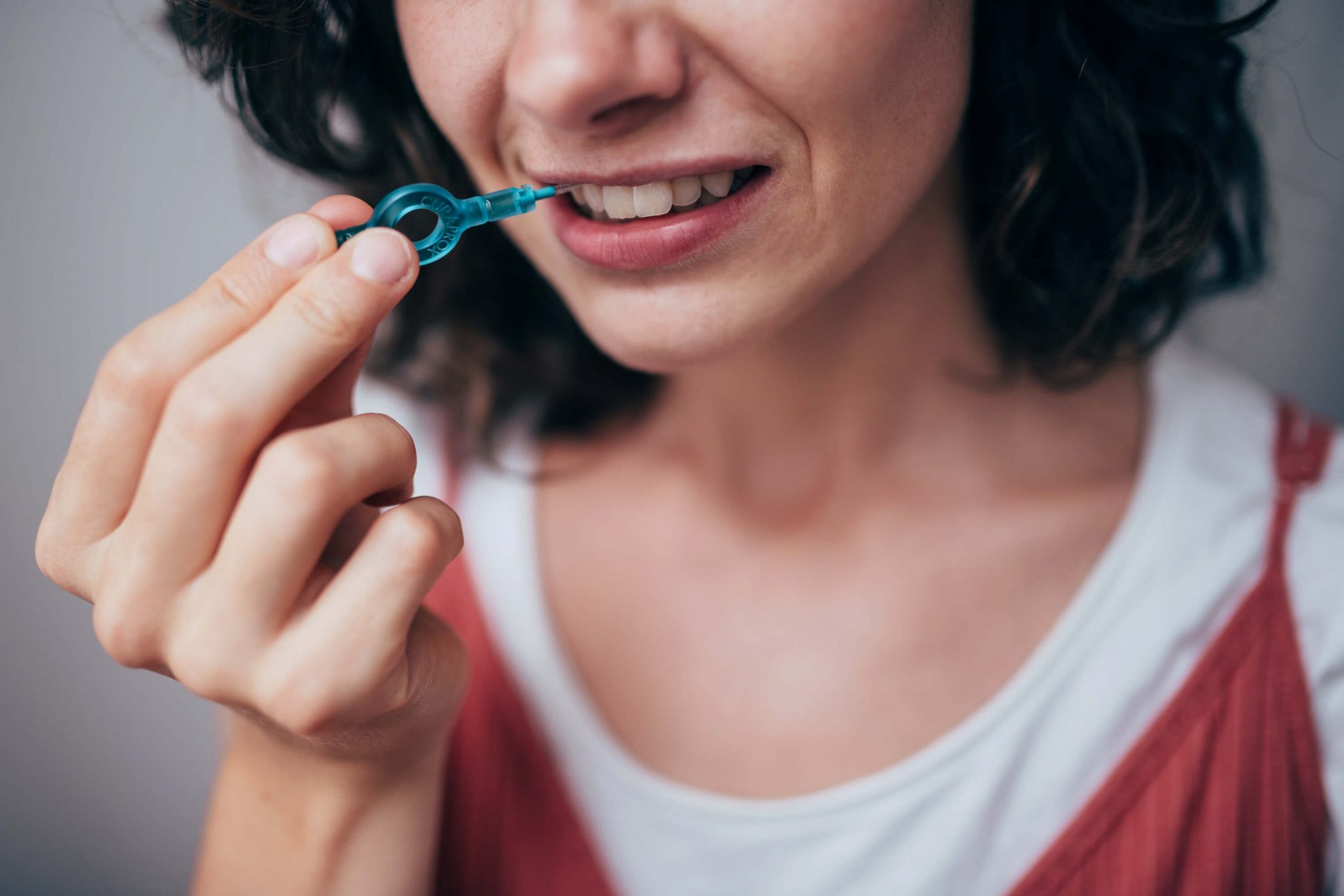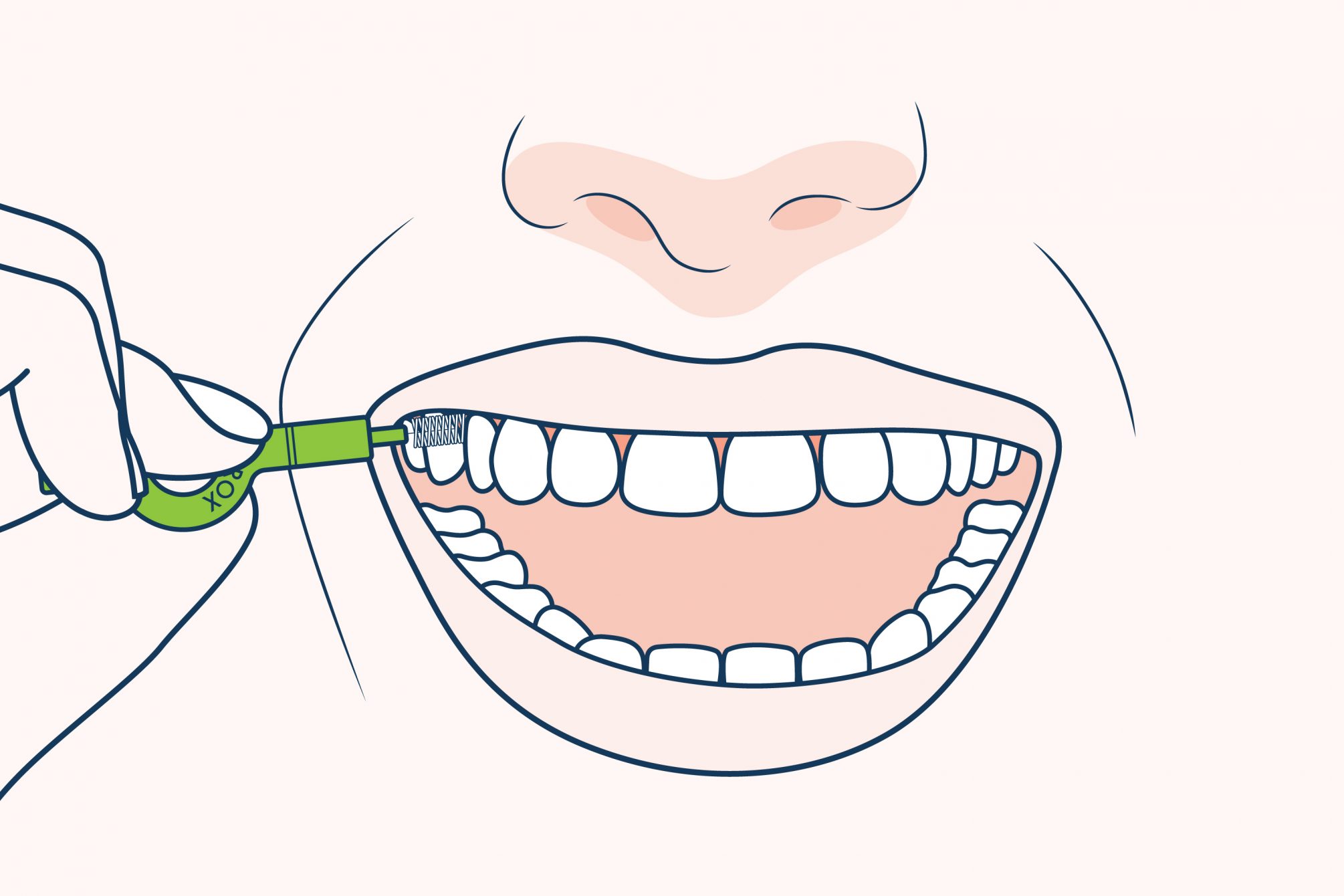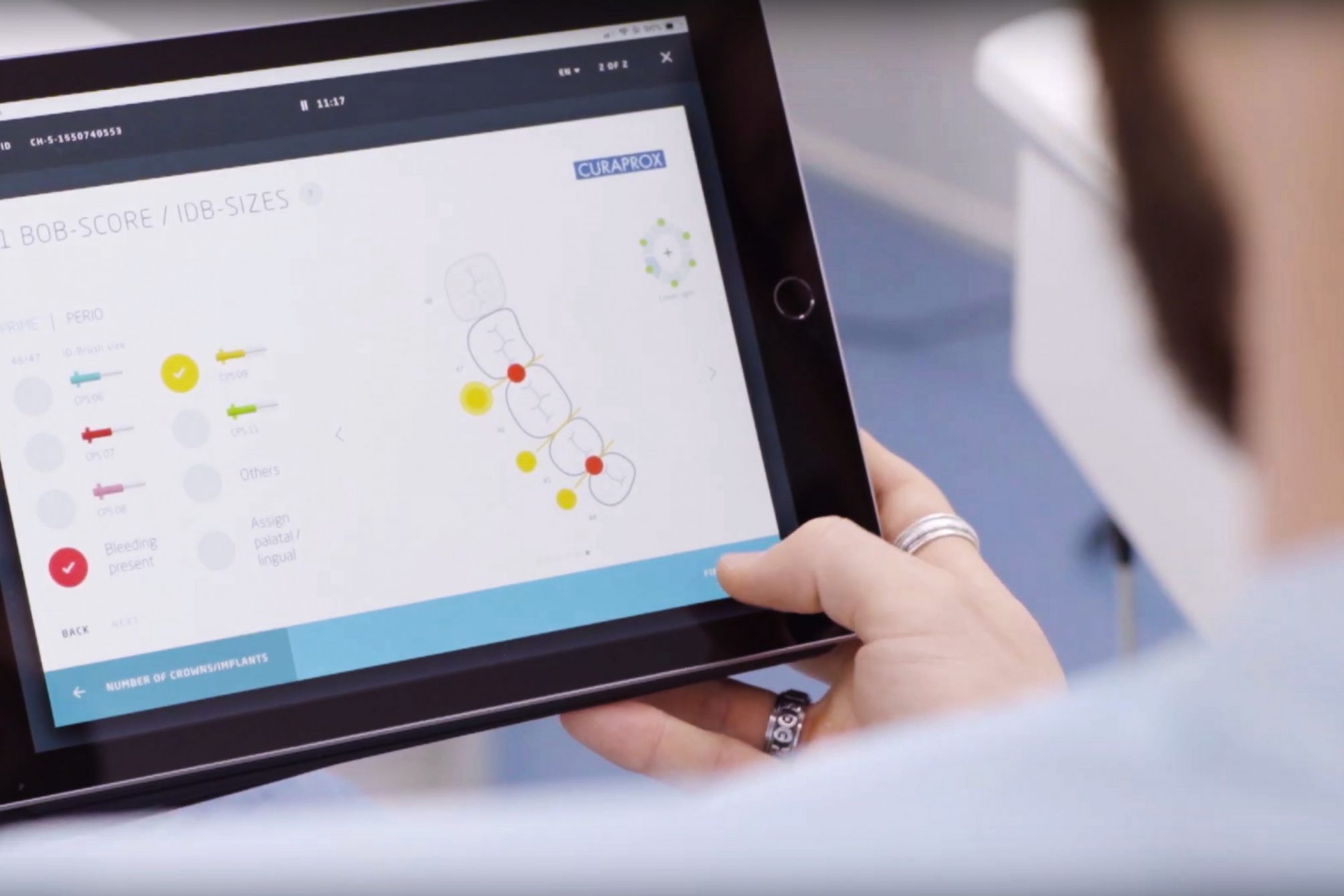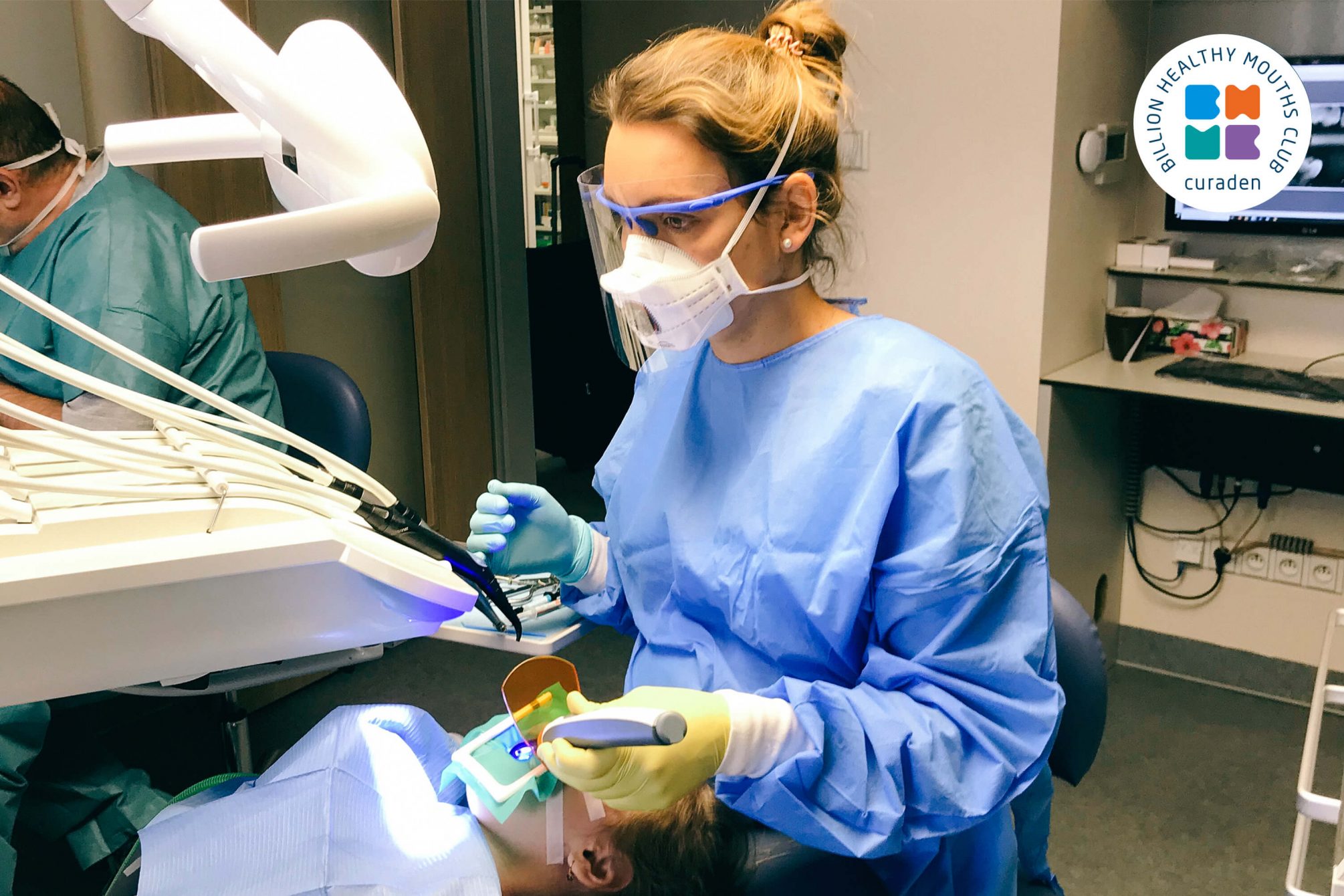Proper oral health care positively influences the quality of life.
Orthodontist MDDr. Soňa Lisá explains how an intensive search for the causes and a thorough conversation with the patient can lead to a patient’s improved quality of life. In this interview, we introduce a dentist who cooperates with specialists in various fields to, literally, come to the root of a problem.
What routines do you find most critical for maintaining proper oral health?
Everybody should understand why it is important to take care of oral health first, and be aware of everything that regular brushing influences. Proper oral health care has a positive effect not only on the condition of the teeth but also on the overall health and quality of life. If people know how cavities occur, why the tooth decays and what the most vulnerable places are, they will clean with an interdental brush out of internal motivation, rather than only because dentists are advising them to use another dental hygiene tool.
What does the word prevention mean to you?
Prevention is key, and early treatment of an oral disease can save a lot of time, worry, and expense. It makes much more sense to me, to invest time in the first visit and to focus on a very thorough examination of the oral cavity using the most up-to-date diagnostic methods while paying attention to the adjacent structures.
Often, we reveal multiple connections between oral and general health thanks to an intensive search of the causes and a thorough conversation with our patients. We lead our patients to understand that the result of our work is the elimination of the causes of oral health problems, not only solving their consequences.
What is your ‘golden rule’ or advice that you tell your patients often?
The need to use interdental brushes is the most common piece of advice that patients listen to. We also encourage children to use this important tool from the very first moment – when the first interdental space appears. Ideally, if a parent uses the interdental brush, he or she will also be able to introduce it correctly to the child. Through regular cleaning of the interdental spaces, we can prevent complications associated with tooth loss.


When we need to start the interceptive orthodontic treatment or treatment of incorrect breathing or myofunction, the dentition and healthy periodontium allows us to use a wider range of treatment options. For adults, remediation and prosthetic work have the greatest durability if dental hygiene includes interdental cleaning.
What’s the biggest challenge of your job?
Teaching patients how to maintain a healthy and happy smile throughout their lives.
I don’t see the meaning of my work as being to repair damaged teeth, but instead as helping in the elimination of the cause – for example, addressing the higher risk of caries.
Adults often neglect their oral health due to a fear of dentists caused by psychological trauma from childhood. Hence, our goal is to perform treatments painlessly and to make it as pleasant as possible by diverting patients’ attention to their favourite media formats like music, tv shows, etc. Patients then feel more relaxed, disconnected from fear, and sometimes even sleep in a dental chair.
For paediatric patients, there is a new challenge every day. I try to make even the most complicated procedures more pleasant and build trust with children in a fun way. When they trust and believe in me, it is much easier for us to win in the fight against germs, and to save teeth. In some cases, when needed, we also have the possibility of using sedation and general anaesthesia.
I consider it crucial to find the causes of oral health problems in time, especially with children. A high carbohydrate diet and sweetened beverages have often a central role in the etiology of caries. If I can motivate parents to change their child’s lifestyle, the result at regular check-ups is sheer satisfaction.

We also look at the causes of possible malocclusion, whether they involve oral breathing or a disorder of the myofunctional system. In order to do that, I need close cooperation with specialists in various fields who are similarly eager to help patients. To find such colleagues and experts is quite a challenge. We work intensively with ENT, speech therapy, nutritionists, paediatricians, allergists, gastroenterologists, psychologists, and sleep specialists. I am very pleased to see that our joint work brings results and we improve children’s quality of life, which in turn leads to a calmer life for their parents.
What’s the thing that you like about your job the most?
When I see my patients satisfied. I always try to approach them the way I want doctors to treat me and my family.
I am very pleased that I am part of a team of doctors who can offer patients above-standard comprehensive care. With our knowledge and skills, we can improve their quality of life. We rehabilitate their teeth and we explain how to take proper care by giving them thorough instruction together with individually chosen tools.
At regular preventive check-ups, I am very happy to see satisfied and healthy patients. I work a lot with children and they can express their emotions very sincerely. It is really worthwhile when a child, who came to my practice seemingly untreatable in a very bad state, runs to hug me. I have to teach them to overcome fear, build trust, undergo complicated procedures and the children still take me as a friend.
What’s the most important thing in terms of an oral care routine, from your point of view?
Consistency and precision. As doctors, we must be consistent in our work – from the initial examination, through precise work in the treatment of patients, to thorough preventive examinations.
We try to teach our patients the same thing – to take care of their teeth thoroughly and precisely. We talk with them a lot, we explain their oral health condition and the possibilities of rehabilitation and subsequent maintenance.
We recommend regular check-ups once a year, and with children twice a year, but everyone has the opportunity to work on their oral health daily. If patients have enough information, the motivation rises and the results are positively striking.
What’s the biggest oral health myth that you always try to explain to your patients?
There are several myths that I often hear, but there is one I come across the most. The care of the milk teeth is important and even a milk tooth that is damaged needs to be repaired. Often, parents are unaware of the complications connected to damage or loss of milk teeth, and how this can affect the growth and development of the jaws. This may also be closely related to neurocognitive development.

Focused on restorative dentistry in both adults and children, MDDr. Soňa Lisá graduated from the Faculty of Medicine at Comenius University in Bratislava, Slovakia. In her practice, she seeks real causes of the problem and finds connections between the symptoms and overall health of her patients. Dr. Lisá searches for dental treatment solutions alongside professionals from other disciplines and continues to study the relationship between breathing and overall dental health. Currently, she works in the practice Somadent, which she established together with her husband in the town of Stará Turá, Slovakia. She continues her education at Department of Orthodontics of the Slovak Medical University in Bratislava.







